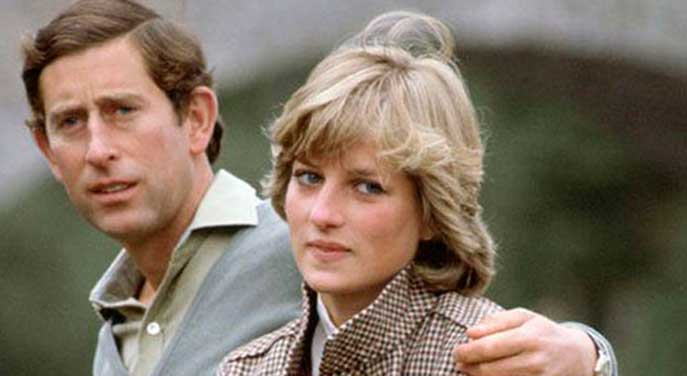 It’s hard to believe that Aug. 31 marks the 25th anniversary of Princess Diana’s death. The passage of time has a way of creeping up on you.
It’s hard to believe that Aug. 31 marks the 25th anniversary of Princess Diana’s death. The passage of time has a way of creeping up on you.
In the days and weeks immediately following the tragic accident, the story consumed the headlines and the airwaves. You couldn’t escape from it, even if you wanted to.
And in Britain, the narrative assumed ominous undertones. A work colleague who was in England at the time described the experience as being bullied.
If you weren’t sufficiently grief-stricken, people wanted to know why. To borrow a phrase from Toronto-born columnist Mark Steyn, “aggressive empathy” was the order of the day. You either got with the program or kept your counsel.
The media coverage was overwhelmingly sentimental, amplifying and encouraging the emotional torrent.
Some even speculated that the monarchy would be washed away by virtue of being perceived as cold and uncaring. The royals, it was said, were complicit in the circumstances leading to Diana’s death. Had they been kinder to her, she’d never have been in Paris on that fateful night.
There were, mind you, some journalists who swam against the tide. Steyn was one and the late Christie Blatchford was another.
 |
| Related Stories |
| Diana’s bad bargain and her enduring mythology
|
| Why all Canadians should be monarchists
|
| Harry will receive a princely sum for a book about nothing |
Referring to Elton John’s musical musing about Diana’s footsteps treading England’s greenest hills, Steyn had this to say: “If so, it’ll be the first time since her schooldays. She never showed the slightest interest in England’s greenest hills – or, anyway, not when compared to Switzerland’s whitest Alps and the Caribbean’s silveriest beaches and the Cote d’Azur’s swankiest yachts.”
Commentators like Steyn and Blatchford weren’t being callous. Neither took issue with the tragic nature of what happened. But they did try to inject a bit of reality, an approach that didn’t endear them to all and sundry.
Hilary Mantel, one of Britain’s most prominent novelists, has also weighed in. Beginning with 2009’s Wolf Hall, her Thomas Cromwell trilogy has been hugely successful both critically and commercially. When she voices an opinion, people notice.
Mantel marked the 20th anniversary of Diana’s death with an essay in the Guardian, Britain’s upmarket left-wing newspaper. It’s a wordy piece that could benefit from a little pruning, starting with shedding the gratuitous ideological dig at Margaret Thatcher. But no matter, Mantel has some interesting observations.
Commenting on a television documentary where Diana described herself as “a rebel” because of doing the opposite of everyone else, Mantel notes: “You want to veil the lens and explain: that is reaction, not rebellion. Throwing a tantrum when thwarted doesn’t make you a free spirit. Rolling your eyes and shrugging doesn’t prove you are brave.”
Mantel sees Diana’s background as sheltered in comparison to that of other young women of her age. She was less than fully formed at the time of her marriage to Prince Charles.
Diana was thus “a hollow vessel, able to carry not just heirs but the projections of others.” Once the media machine focused on her, the public appetite created an image that didn’t necessarily bear much resemblance to the real person.
Diana, though, was far from passive in all this: “At first, she said, she was afraid of the crowds who gathered to adore her. Then she began to feed on them.”
So Diana set about shaping the way her public saw her: “Her dealings with the press and photographers were not innocent. The images had to be carefully curated – her good side, so to speak. There were unacceptable angles.”
Later, the marital estrangement became a public spectacle and a nasty divorce followed. Mantel views Diana as the winner in the ensuing battle “because she was ruthless, and had better legs.” Played out in the full glare of the spotlight, the breakup was simultaneously tawdry, titillating and engrossing. Whatever mutual affection there might once have been was well and truly gone.
Still, Diana’s war on the House of Windsor didn’t topple its target. A quarter century on, we’ve just passed through the celebrations for Queen Elizabeth’s Platinum Jubilee. And Diana’s bête noire, Camilla, is ensconced as Duchess of Cornwall and queen consort in waiting.
We’ll leave Mantel with the last word: “She was not a saint, or a rebel who needs our posthumous assistance – she was a young woman of scant personal resources who believed she was basking with dolphins when she was foundering among sharks.”
Pat Murphy casts a history buff’s eye at the goings-on in our world. Never cynical – well, perhaps a little bit.
For interview requests, click here.
The opinions expressed by our columnists and contributors are theirs alone and do not inherently or expressly reflect the views of our publication.
© Troy Media
Troy Media is an editorial content provider to media outlets and its own hosted community news outlets across Canada.

